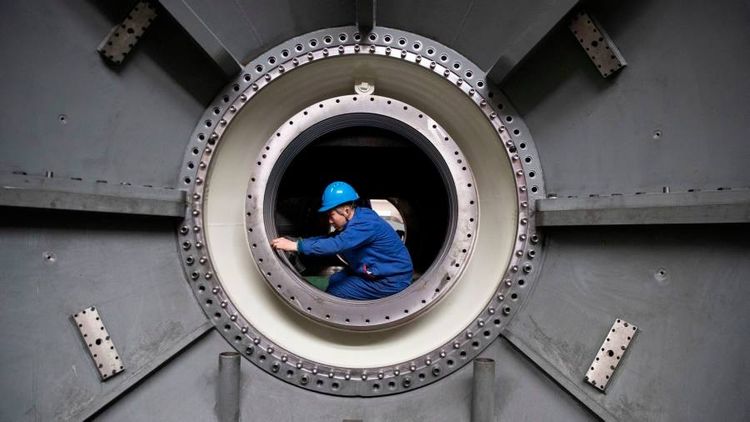China’s manufacturing activity shrinks in August

Get complimentary updates on the Chinese economy
You will receive a daily email called myFT Daily Digest that will summarize the latest news about the Chinese economy each morning.
In August, China's manufacturing sector experienced a decline in activity for the fifth consecutive month, as reported by an official survey. This puts more pressure on policymakers in the second-biggest economy globally to implement measures that will strengthen economic growth.
The purchasing managers' index for manufacturing in the country was at 49.7 during the month. A score below 50 suggests a decrease in comparison to the previous month. On the other hand, the non-manufacturing PMI, which encompasses sectors like services, agriculture, and construction, reached 51.
A string of discouraging information has raised worries about the state of China's economy. Many had expected a substantial recovery after Covid-19 restrictions were lifted in early 2023, but it has not manifested as anticipated.
The real estate industry in China, which usually contributes to over a quarter of the total economy, has experienced a significant decline due to a liquidity crisis lasting two years. At the same time, the once-thriving export sector has been negatively impacted by reduced global consumption. In July, there was a year-on-year decrease in consumer prices for the first time since the beginning of 2021.
Despite not reaching levels of expansion, the manufacturing data for Thursday showed a slight improvement compared to last month's reading of 49.3 and surpassed the predictions made by analysts surveyed by Reuters. On the other hand, the non-manufacturing data did not meet expectations.
Sheana Yue, an economist specializing in China at Capital Economics, proposed that the data indicated "a small enhancement in economic activity during August" but observed that "the general economic progress remains feeble and there is a requirement for additional policy assistance to prevent another decline later this year".
Beijing has established its smallest economic growth goal in many years, standing at 5 per cent for the entire year, and taken careful measures to assist the economy. Decision-makers have aimed to increase spending, which remains feeble, but refrained from implementing any significant incentives. Authorities surprised the market last week by maintaining a key lending rate for a five-year period, fearing that further reductions would strain the banking system.
This week, the urban areas of Guangzhou and Shenzhen have relaxed the requirements for individuals purchasing a home for the first time. This decision may offer some relief to the real estate industry, which has faced numerous challenges such as numerous loan defaults, delays in construction, and a decrease in property transactions.
China's largest private developer, Country Garden, failed to make its bond payments recently and revealed a massive loss of $7 billion in the first six months of this year. Concerns arise as Zhongrong, a significant Chinese investment firm, also faced missed payments, potentially indicating the real estate crisis could affect the nation's savings offerings.
According to analysts from Goldman Sachs, in the survey that focuses on activities other than manufacturing, sectors like transportation, lodging, food services, sports, and entertainment scored above 55. This indicates that the performance of industries like real estate may have worsened in August.
On Thursday, Chinese stocks experienced a decline after the most recent PMI data was released. The CSI 300 index dropped by 0.6%, while the real estate sub-index suffered a significant slump of over 4%.
More information gathered by Hudson Lockett in Hong Kong









































